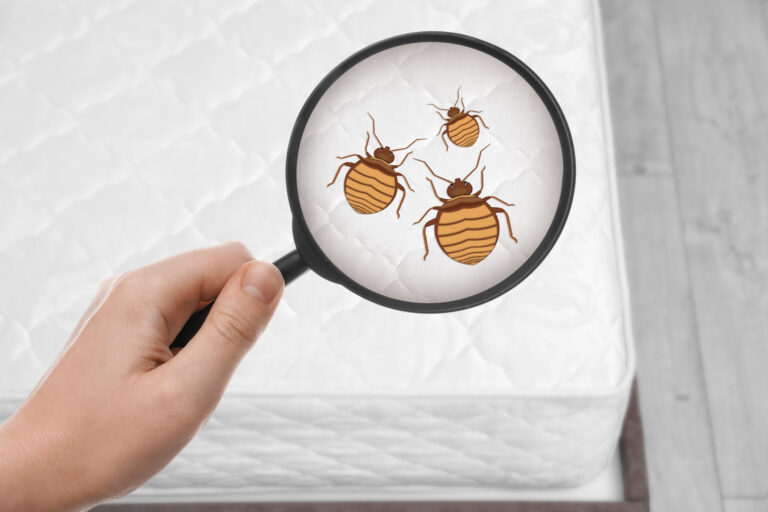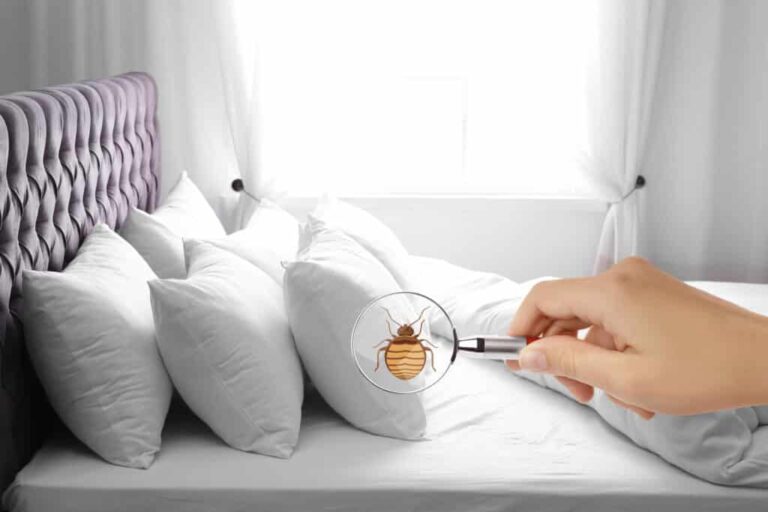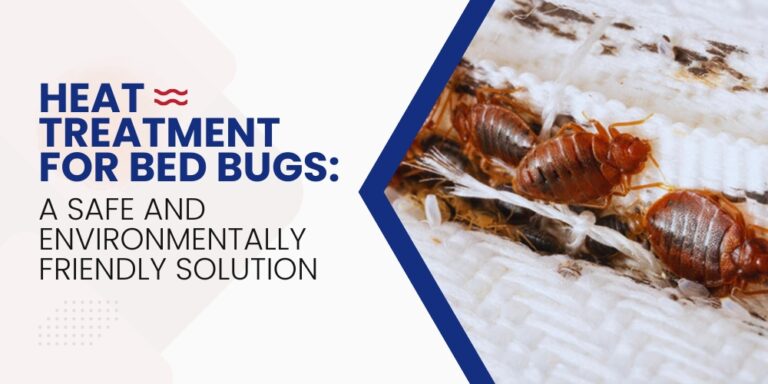Have you ever woken up in the dead of night, startled by mysterious bites that appear out of nowhere? The unsettling truth is that bed bugs, once nearly eradicated, have made a relentless comeback. The National Pest Management Association (NPMA) reports a significant surge in bed bug infestations in recent years, with 97% of pest control professionals encountering these blood-sucking pests. Finding the best bed bug treatment becomes paramount as they infiltrate our homes, hotels, and workplaces.
Unravel the secrets to effective eradication as we explore these pests’ characteristics, behaviors, risks, and pros and cons of chemical, non-chemical, and heat treatments. Whether you seek affordable bed bug exterminators or eco-friendly solutions, this comprehensive guide will empower you to reclaim your sanctuary from these resilient intruders.
Understanding Bed Bugs
Before delving into the different treatment options, it is essential to understand these pests better. Bed bugs, scientifically identified as Cimex lectularius, are tiny, reddish-brown insects that survive by feeding on the blood of humans and animals. Bed bugs often infest areas where people rest or sleep, including beds, sofas, and even public transportation.
Detecting a bed bug infestation is crucial in early intervention. Common signs include itchy bites arranged linearly, reddish-brown fecal spots on bedding, and discarded exoskeletons. While bed bug bites are typically harmless, specific individuals may encounter allergic reactions or secondary infections due to scratching.
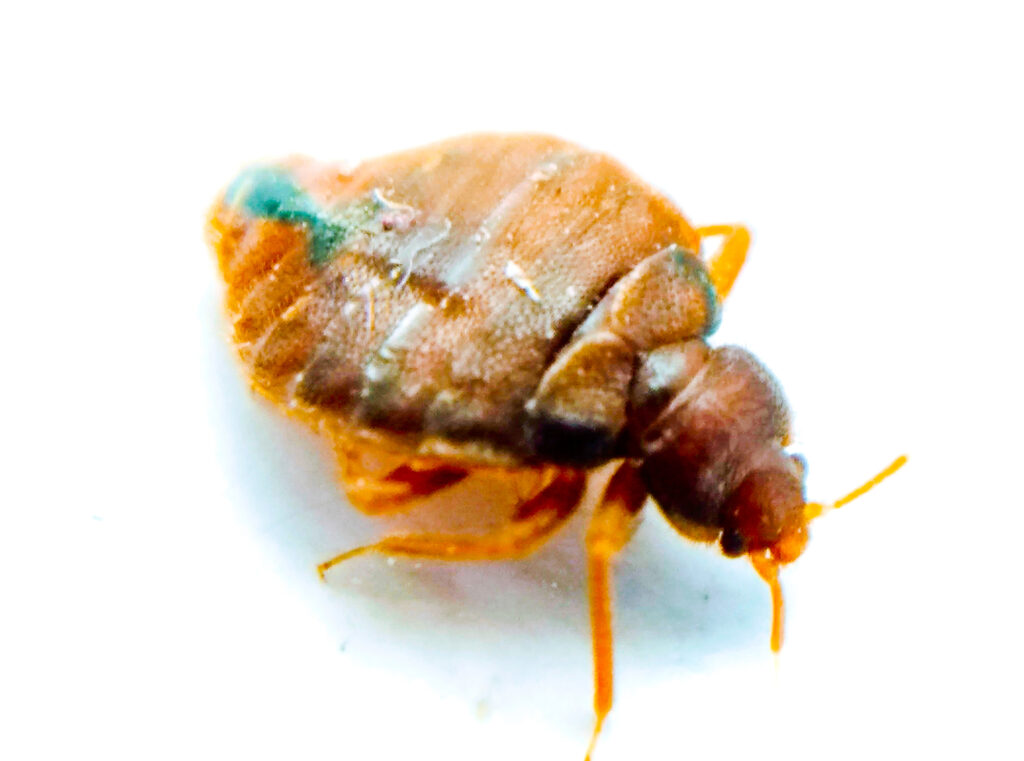
Different Bed Bug Treatment Options
Selecting the proper treatment for your bed bug problem is crucial. Below are the most effective options available:
Chemical Treatments
Chemical treatments have long been the go-to method for combating bed bug infestations. These treatments involve the application of insecticides that target the pests directly. While chemical treatments can effectively eradicate bed bugs, they have specific pros and cons.
On the positive side, chemical treatments can swiftly eliminate bed bugs and their eggs, providing rapid relief from infestations. However, their use raises concerns about potential health risks for humans and pets. Moreover, certain chemical compounds have encountered resistance in some bed bugs, diminishing the efficacy of these treatments in specific cases.
One example of effective chemical treatment is using neonicotinoids, a class of insecticides that disrupt the nervous system of bed bugs, leading to their demise. For those seeking affordable bed bug exterminators, chemical treatments might be viable, but carefully considering potential health risks is crucial.
Non-Chemical Treatments
Given the potential risks of chemical treatments, many individuals prefer non-chemical alternatives for bed bug eradication. Non-chemical treatments rely on mechanical methods and natural substances to control infestations.
One popular non-chemical approach is diatomaceous earth, a natural powder derived from fossilized algae. This substance effectively dehydrates and kills bed bugs by damaging their exoskeletons. Steam treatments are another non-chemical option, as exposing bed bugs to high temperatures can prove lethal for them.
Non-chemical treatments are generally considered safer for humans and the environment but may require more time and effort to achieve complete eradication. For those seeking pest control for bed bugs in Atlanta that are eco-friendly, non-chemical treatments could be the ideal choice.
Heat Treatments
Heat treatments have gained popularity as an effective and eco-friendly solution for bed bug infestations. This method uses high temperatures to eliminate bed bugs at all life stages, from eggs to adults.
One of the main advantages of heat treatments is their ability to penetrate cracks and crevices where bed bugs hide, ensuring comprehensive eradication. Heat treatments are also non-toxic and do not leave chemical residues behind. However, the effectiveness relies on the correct application and the expertise of professionals.
Using specialized heating equipment, professionals raise the temperature of the infested area to a level that bed bugs cannot survive. This process typically involves maintaining temperatures above 120°F for an extended period. Heat treatments present a sustainable solution for individuals mindful of the environmental repercussions of pest control methods.

Factors to Consider in Choosing the Best Bed Bug Treatment
When facing the persistent presence of bed bugs, selecting the most appropriate bed bug treatment involves careful consideration of various factors:
Infestation Severity
The extent of the infestation plays a significant role in determining the best course of action. Small, localized infestations may be effectively treated with non-chemical methods, while more prominent and more entrenched infestations might require chemical or heat treatments for thorough eradication.
Personal Health Considerations
Individuals with allergies or respiratory conditions may be more sensitive to specific treatments, especially chemicals. In such cases, opting for non-chemical or heat treatments could be a wiser choice to minimize potential health risks.
Environmental Impact
For environmentally-conscious individuals, non-chemical treatments or heat treatments can be preferred options. These methods leave minimal environmental footprints and are less likely to harm beneficial insects or contaminate the surroundings.
Costs and Budget
The cost of bed bug treatments can vary significantly depending on the chosen method, the infestation size, and the region. It is essential to consider the budget constraints and weigh the costs against the effectiveness of the selected treatment. Those seeking affordable bed bug exterminators in Atlanta may find that non-chemical methods or heat treatments offer cost-effective solutions.
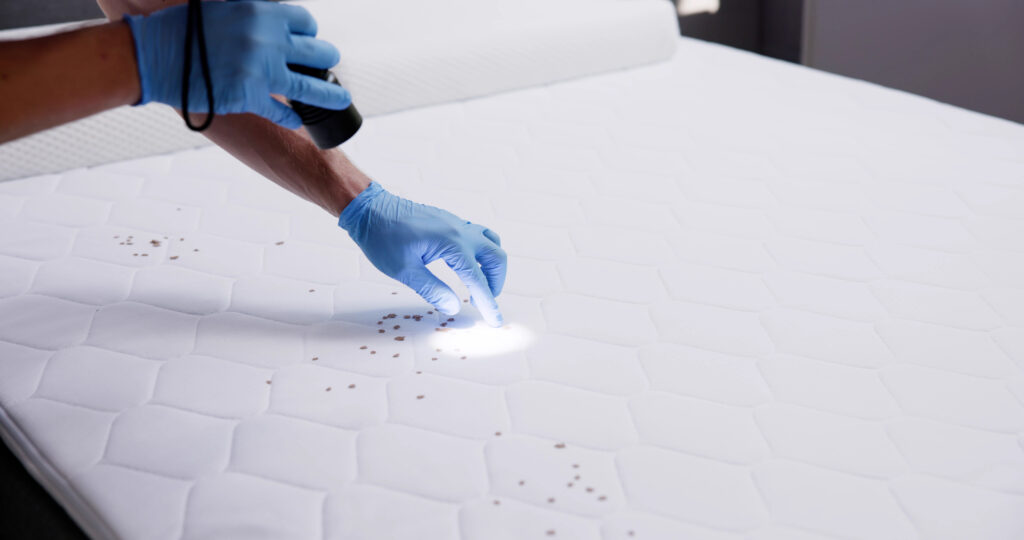
Expert Opinions and Recommendations
When faced with a bed bug infestation, seeking the guidance of pest control experts is essential for effective eradication. These experts have specialized knowledge and experience, enabling them to precisely assess the infestation’s severity and create customized treatment strategies. Relying on their expertise can significantly increase the chances of successful bed bug elimination, preventing future re-infestations.
In addition to consulting pest control experts, conducting thorough research can prove invaluable in making informed decisions. Reading up on reputable sources, scientific studies, and customer reviews of various treatment methods can also provide valuable insights into their effectiveness and potential drawbacks. Learning from the experiences of others who have dealt with bed bug infestations can offer practical tips and best practices for managing these pests.
Combining expert opinions with well-researched recommendations allows individuals to choose the best bed bug treatment that aligns with their needs and circumstances. Furthermore, understanding the factors contributing to successful eradication can empower individuals to proactively prevent bed bug incidents, ensuring a pest-free and comfortable living environment.
Sustainable Solutions for Infestations!
In summary, the battle against bed bugs requires a strategic approach and informed decision-making. Understanding the characteristics of these persistent pests and exploring various treatment options, from chemical and non-chemical to heat treatments, empowers us to combat infestations effectively. Seeking advice from pest control experts, backed by research and customer experiences, ensures the best choice for eradication.
So, are you ready to reclaim your home and bid these blood-sucking intruders farewell? Consider the expertise of affordable bed bug exterminators and the eco-friendly alternatives of pest control for bed bugs to protect your sanctuary from future invasions. Your peaceful and pest-free sanctuary awaits!


